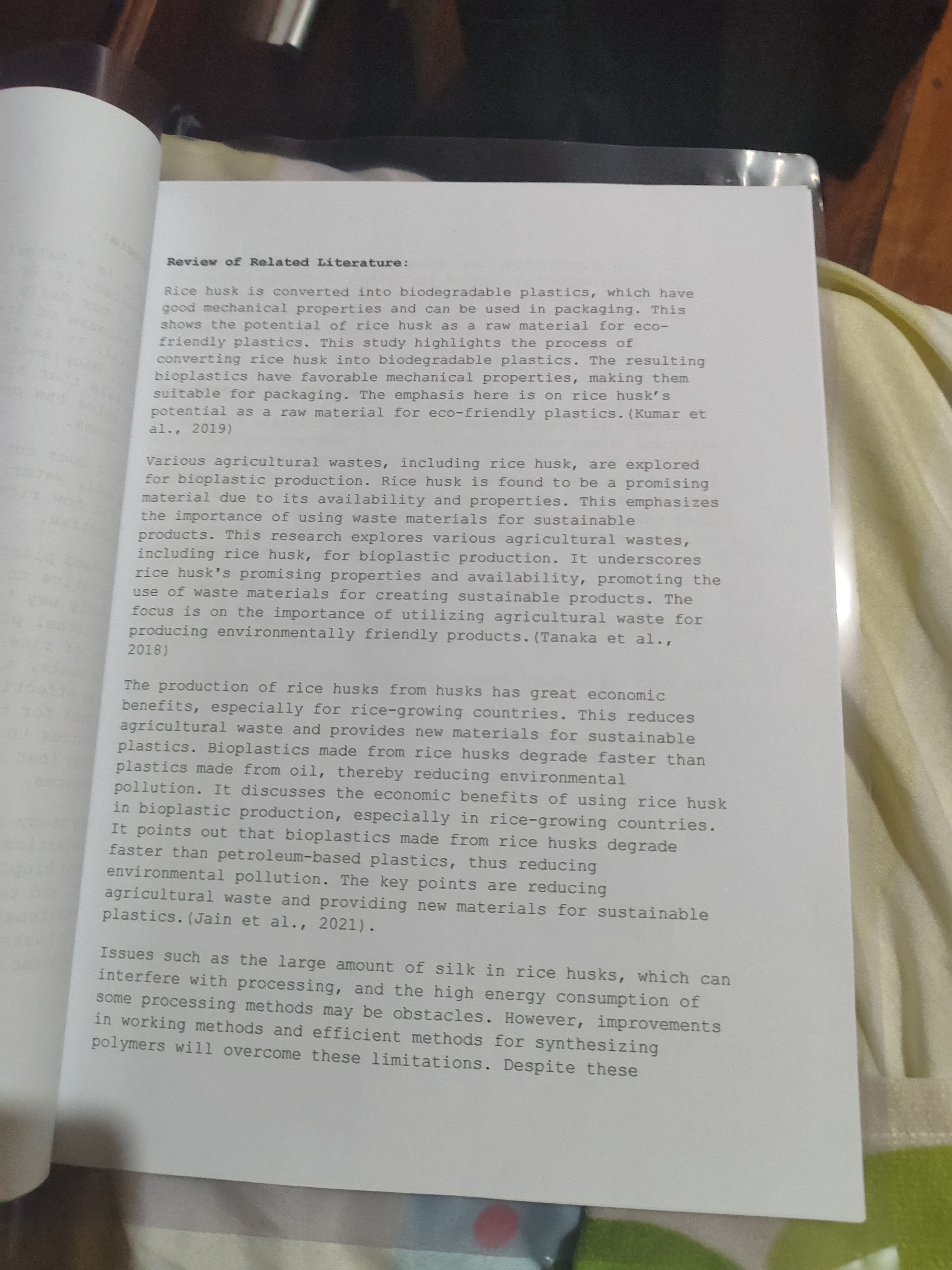
Understand the Problem
The text discusses the conversion of rice husk into biodegradable plastics, emphasizing their potential for eco-friendly packaging and highlighting economic and environmental benefits related to sustainable practices.
Answer
Rice husk bioplastics are eco-friendly, degrade quickly, and have good properties, but face processing challenges.
Rice husk is converted into biodegradable plastics due to its promising properties and availability. These bioplastics have good mechanical properties and degrade faster than petroleum-based plastics, reducing environmental pollution. Key challenges include processing issues, such as silk content and energy consumption.
Answer for screen readers
Rice husk is converted into biodegradable plastics due to its promising properties and availability. These bioplastics have good mechanical properties and degrade faster than petroleum-based plastics, reducing environmental pollution. Key challenges include processing issues, such as silk content and energy consumption.
More Information
The use of rice husks in bioplastics not only provides economic benefits, especially in rice-growing areas, but also helps in waste management, promoting sustainability.
Tips
A common mistake is underestimating the processing challenges like silk presence. Addressing these challenges is crucial for efficient production.
AI-generated content may contain errors. Please verify critical information